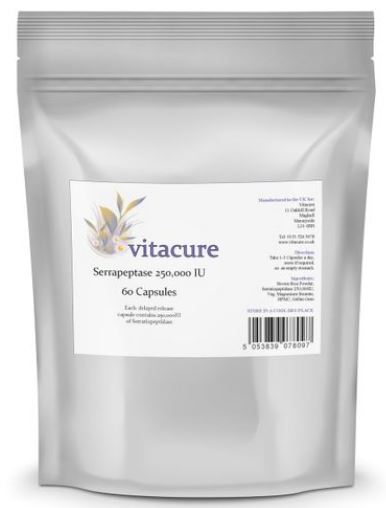Inflammation… what do you think of when you read that word? A minor cut from a sharp object? A bump on the head? A rash from an insect bite? If so, you’re certainly thinking along the right lines; yet, there’s another lesser known type of inflammation, too – one that takes place inside the body. It’s not usually accompanied with pain, but it can do you real damage. This, though, is where an anti-inflammatory diet can help. How? Read on…
What exactly is inflammation?
Of course, inflammation isn’t always bad for the body; far from it. That’s because, as noted above, inflammation is often a reaction to an injury generated by the immune system – or, likewise, that system’s reaction to an allergy or bacteria. In general terms, when it occurs to help combat a short-term concern like this (acute inflammation), it serves a good, important purpose. It’s when it lingers inside (chronic inflammation) that it’s bad news because it can reduce the body’s overall immunity and cause damage to your body.
How will an anti-inflammatory diet help you?
Because inflammation’s directly related to immunity, it has direct connectivity to the digestive tract; for it’s here where the body’s microbiome (the ‘healthy’ bacteria and other micro-organisms that play a critical role in the regulation of the immune system) actually reside. This means then, a poor diet can very quickly trigger an unnecessary inflammatory response, given that – obviously – what’s in your diet winds up in your digestive tract faster than it does practically anywhere else in the body.
Conversely, a healthy, balanced diet will only aid your body in its tireless work to thrive and so, naturally, help boost your immunity. So, a diet balanced with the likes of omega-3 fatty acids (which help regulate inflammation) and omega-6 fatty acids (which serve to stimulate inflammation), in addition to getting exercise, good sleep, drinking water and trying to reduce your stress levels, ought to aid the normalisation of inflammation.
Recommended anti-inflammatory foods
Ideally, an anti-inflammatory diet may well share many characteristics with a plant-based Mediterranean diet, the likes of which research suggests can extend your life and improve its quality. Studies, too, show that many vegetarians and vegans enjoy less inflammation, as well as less risk developing heart disease.
When following such a diet, though, try not to overdo carbohydrates (not least sugar) because these might just tip your hormonal balance, which might spur on inflammation. Experts in inflammation often agree on the ‘40-30-30 rule’ when it comes to diet: 40 percent complex carbohydrates, 30 percent low-fat protein and 30 percent healthy fats:
- Fruits and vegetables – boldly colourful, non-starchy vegetables and fresh fruits are highly advised because they’re rich in antioxidants (which help the immune system combat free radicals and prevent inflammation), such as dark leafy greens (collards, kale and spinach), cruciferous veggies (broccoli, cabbage and cauliflower), root vegetables (rutabaga and sweet potatoes) and garlic, onions, peppers and tomatoes.
Fruit-wise, try to concentrate on berries (blackberries, blueberries, cranberries and raspberries), citrus fruits (lemons, limes and oranges), stone fruits (avocados, cherries, nectarines, olives and plums) and pome fruits (apples, pears and quinces).
- Gluten-free whole grains – these deliver the double-whammy that’s antioxidants and fibre, while it’s believed they also aid the rise in the body of the C-reactive protein (CRP), an inflammation marker; aim for the likes of barley, buckwheat, brown rice, oats and quinoa.
- Nuts and seeds – monounsaturated fat features highly in both, as well as heart-healthy fibre; go for almonds, cashews, pine nuts, sunflower seeds, pumpkin seeds and unsalted walnuts.
- Herbs and spices – these contain many antioxidants; turmeric is particularly potent because it comprises curcumin, which is excellent for helping to normalise redness and swelling.
Inflammatory foods to avoid
Conversely, important foods to avoid are:
- Processed food – usually low in nutrients and fibre, the likes of chips, white bread, pasta, boxed breakfast cereals and frozen dinners tend to be high in omega-6 fats (not good without omega-3 fats because, on their own, they encourage inflammation; see above), as well saturated fats, trans fats and added sugars.
- Sugar – because it causes the body to release cytokines (chemical messengers that wake up the immune system), sugar can help generate systemic swelling in the body; so try to avoid cakes, cookies, ice cream, sodas, sweets and sweet tea, as well as chemical sweeteners and natural sweeteners like honey and maple syrup.
- Fried food – most often fried in unhealthy oils, these contain inflammation-triggering saturated fats and trans fats; steer clear then of the likes of snack foods and doughnuts.
Inflammation supplements
Obviously, the above list you’re advised to buy from, for an anti-inflammatory diet, is full of very specific foods. Now, that’s all very well and good but, as we all know, it’s not always easy – sometimes next to impossible – to get your hands on very particular foods on every supermarket shop. What to do instead? Well, naturally-derived, anti-inflammatory supplements may well be something you want to take a look at. We advise you check out our ‘Pain and Inflammation’ products page for exactly this sort of supplement; examples of what you’ll find there, which we highly recommend, are:
Very high-strength Serrapeptase (1,000,000iu/ 90 capsules) – a natural supplement form of the powerful anti-inflammatory enzyme Serrapeptase, it could well prove useful for post-traumatic swelling and fibrocystic breast disease and bronchitis, as well as for balancing fluid levels and for muscle- and joint-health.

Liposomal Curcumin C3 Complex (250ml) – comprises a blend of curcuminoids, not just curcumin; in addition to reducing inflammation (see above), it may well soothe and support the gut’s lining, support immunity and maintain prostate wellness.
MSM Powder (1,000g) – important not just for collagen generation and cartilage formation, MSM helps to maintain joint and muscle health and may also aid the immune system and so keep inflammation in check.
